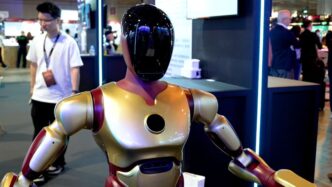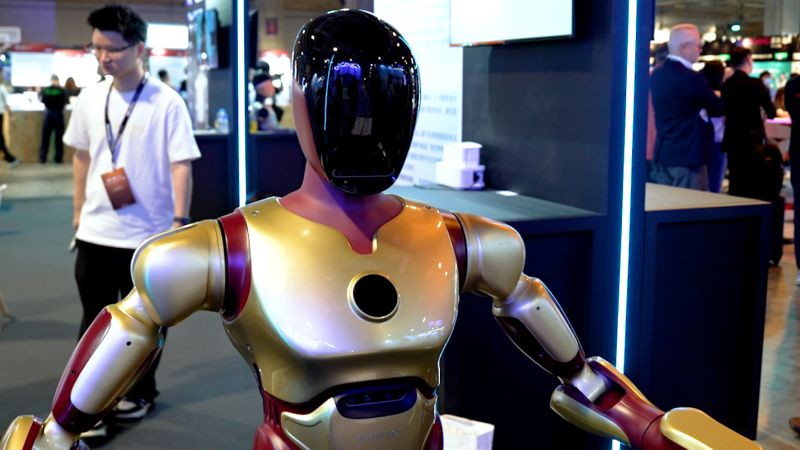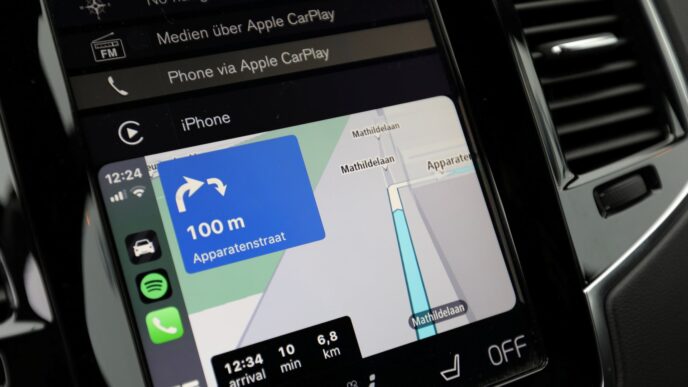AI² Robotics just launched AlphaBot 2, a humanoid robot that plays dice and responds to players with thumbs up. The bot, unveiled at Beyond Expo 2025 in Macao, uses embodied AI to understand commands and learn on the spot.
Instead of programming step-by-step moves, you just tell AlphaBot 2 what to do. The robot figures out the environment and acts. CEO Yandong Guo explained the bot learned the dice game in minutes with just 5-10 examples.
"In the last era of robots, people needed to program them to tell them what to do," Yandong Guo said to CNN.
"Now you just tell them what to do, and the robot can understand the environment.""We just show the robot what to do, maybe five to 10 samples, and the robot can learn."
China is backing embodied AI strongly—providing funding, building innovation centers, and even a robot school. Shenzhen alone hosts over 200 companies working on such tech.
AlphaBot 2 is already in industry, helping in factories like Dongfeng Liuzhou Motor Co. It loads materials, tows carts, and labels windshields. Guo wants it to go into homes next.
The home robot market faces challenges: prices are high, safety is a concern, and training data for varied home setups is scarce. UBTech Robotics plans a $20,000 companion bot this year but admits it’s years from useful home help.
Guo imagines robots fetching tea or cleaning dishes but says affordability and tech hurdles remain.
"If you want to drink some tea," Guo said,
"the robot can know where to fetch the teabag can know where to get hot water, and how to pour the hot water into the cup and make tea for you.""After we eat, I hope our robot can clean up all the dishes for us. We love to cook, but we don’t like to clean things up."
Prices will need to drop. AI² declined to share AlphaBot 2’s cost, saying robots are custom-made. Others in China hover near $15,000. A spokesperson predicts prices could fall to the cost of an entry-level car in five years.
Safety is another hard limit. Robots tipping over or collecting private data poses risks. Still, Guo says interest in humanoids is growing fast in China.
Experts think 5–10 years out is when home-use humanoids might get practical.
AI² Robotics plans to launch service robots in major Chinese airports later in 2025, handling tasks like luggage carts. Senior care facilities could get bots within 3–5 years.
"We need to get a lot of data for the robot to learn, to have this kind of common sense," Guo said.
"Our dream is to get one robot for every family."














